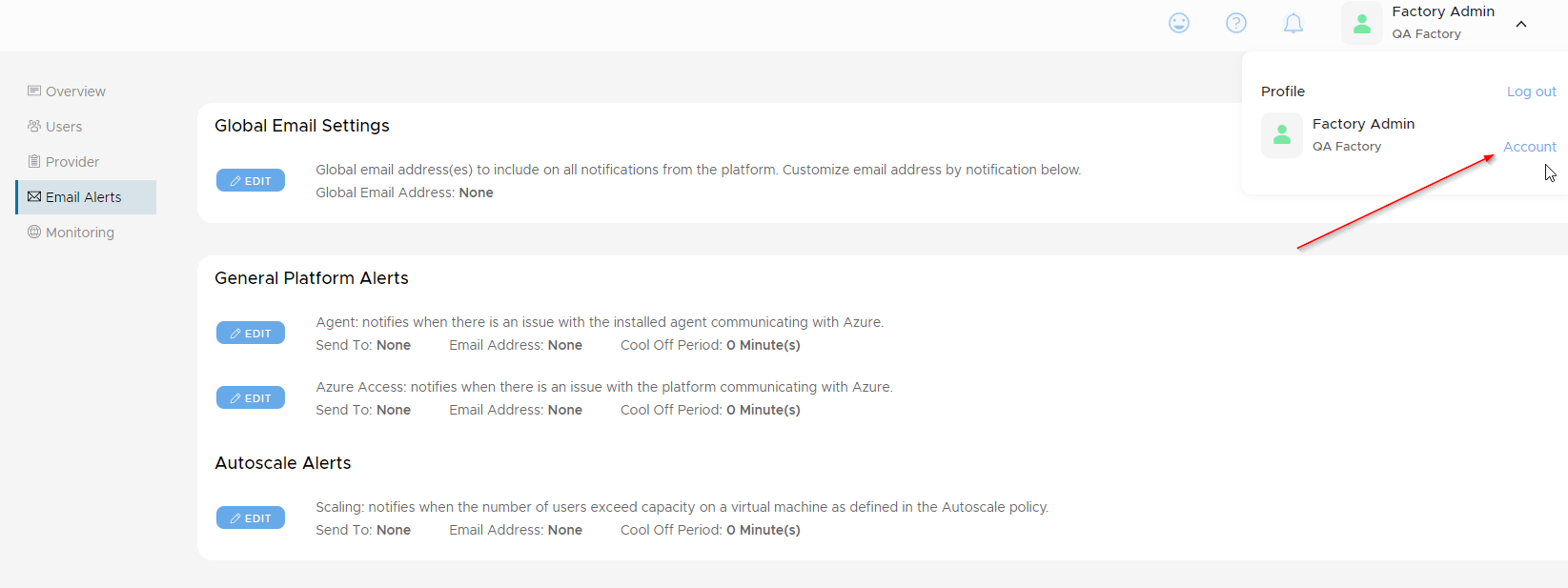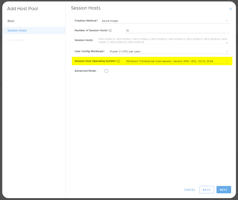Add an existing AVD deployment to the MyCloudIT platform to utilize its features This guide will...
Configure Email Alerts
A client account can be configured with email alerts to notify in a number of key areas.
To configure this feature log into the MyCloudIT (MCIT) portal and navigate to "Account" then "Email Alerts".
Note that we plan to add further email alert types in the future.

Configuring Global Email Settings
Type in an email address where alerts will be sent to. Setting this alone will not send any alerts they need to be configured per alert type as well. You may add multiple addresses with a semicolon ( ; ) separating them. Example: it@example.com;alerts@example.com
Configuring Individual Alert Types
Guide coming soon.
Email send conditions
Agent
RDS
This will send an email when the MCIT RDS agent installed on one of the virtual machines (usually the domain controller called MSDC-001) is not sending back updates to the MCIT portal. This may indicate that the MCIT agent VM is deallocated or the agent requires restarting.
AVD
This will send an email when the MCIT portal can't get AVD details from Azure. This may indicate the provider access between Azure and the MCIT portal having communication issues.
Azure Access
RDS
This will send an email when the MCIT portal can't get details from Azure. This may indicate the provider access between Azure and the MCIT portal having communication issues.
AVD
This will send an email when the MCIT portal can't get details from Azure. This may indicate the provider access between Azure and the MCIT portal having communication issues.
Autoscale Capacity
RDS
This will send an email when capacity for a collection is over 100%. The capacity is set in the current (active) autoscale policy. Capacity here refers to how many users should be able to comfortably use the running session hosts. 50% would mean your current running session hosts are at half capacity. Over 100% means either the autoscale policy is not set correctly, or you have more users logged in than the running session hosts allow. You may need to update your autoscale policies, scale-up or scale-out the collection. Note: Session hosts in drain mode are not available for users thus not counted in the capacity percentage calculation.
AVD
This will send an email when capacity for a host pool is over 100%. The capacity is set in the current (active) autoscale policy. Capacity here refers to how many users should be able to comfortably use the running session hosts. 50% would mean your current running session hosts are at half capacity. Over 100% means either the autoscale policy is not set correctly, or you have more users logged in than the running session hosts allow. You may need to update your autoscale policies, scale-up or scale-out the host pool. Note: Session hosts in drain mode are not available for users thus not counted in the capacity percentage calculation.

